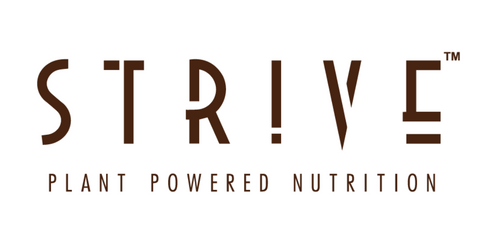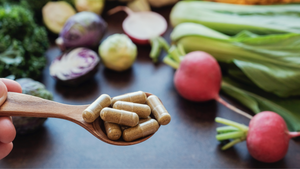Choosing a supplement is like finding a match through online dating apps. There are a lot of inflated claims, misleading information and way too many choices. On top of this, there are unnecessary additives, fillers and at times harmful substances that give you short term gains and long-term troubles. Considering the difficult task at hand, it is critical to do your homework. Here are a few quick tips to help you cover the bases.
Do you really need one? Yes and No.
Not everyone needs a supplement, but having said that, a large share of the population remain deficient in vital macronutrients like protein and some micronutrients. A few people manage to get the required nutrients from a healthy and balanced diet covering the major food groups. You may require a supplement depending on your state of wellness. Do you feel energetic enough to go about a busy day physically and mentally? Do you recover well from workouts? Is there any brain fog? Factors of age, level of physical activity, dietary preferences, existing conditions such as PCOD, gut health and nutritional availability all affect your nutritional needs. Another example: if you are a woman and have hormonal health concerns, weight imbalances, and are prone to, or suffer from PCOD, you are more suited to opting for a quality based plant-protein (no whey, no dairy) that can help meet protein needs. If you are healthy, you can use a simple tool such as Cronometer or Nutrify India Now app to perform a high level preliminary check on whether you are covering your macronutrients and micronutrients. The best way to evaluate your need is to consult your science-based, certified nutritionist or a dietician who can help you take a balanced approach.
What type of protein is best for you?
People often forget to address quality first and obsess over quantity and grams per serving. Consuming too much low-quality protein can stress the kidneys. Digestibility of protein is one way to evaluate the quality of protein. A high-quality protein will have a higher digestibility percentage. The quantity seen on the label will not be the quantity your body can use if the protein is of lower quality. When you feel bloated or sense inflammation, it is your body telling you that it is time to revisit what you are ingesting. Remember that the body and your taste palette might need some time to adjust and adapt to quality sources when you are used to substandard supplements. If you are currently on a whey protein and particularly if it had been sweetened artificially, you may need time to adapt to a healthier cleaner protein. This may cause a sense of mild discomfort initially. For example, if you are new to consuming vegetable or legume based proteins, your gut and taste buds need a bit of time to adjust! Being patient and consistent is key as building a habit takes three to four weeks.

What do you need?
There is a broad spectrum of supplements out there. Take the time to understand your requirements and evaluate what supplements suit your lifestyle and allergies. Watch out for brands that make tall claims like ‘build muscles quickly’ or ‘burn fat instantly’. If it sounds too good to be true, it usually is. If you have an allergy or are concerned about the source of protein, reading the label is a good place to start. Most labels will have information about what the product is ‘free’ from. Often, you can get an indication of the quality of a supplement by checking the ‘free from” information. This might include, ‘free from’: gluten, wheat, lactose, eggs, soy, shellfish, tree nuts, peanuts, artificial preservatives, artificial colourings, GMOs etc.
Whom can you trust?
The question is less existential in nature when it comes to quality protein sources. Find a brand you can trust. Most brands have stories and felt needs that lead them to develop the product. They also have athletes and health enthusiasts speaking about the product. It is important to speak to people who have used the product and find real feedback. A good, clean brand always has a strong team of authentic health and nutrition enthusiasts at its core. Find a brand that aligns with your health and fitness goals and take the time to learn about the people who made the product and how they made it.
What’s in the fine print?
Look for a food-grade supplement and as close to a natural source as possible. Look for ingredient information and read through the sugar content and details pertaining to preservatives and flavouring additives. Some supplements choose natural sugar sources while others use artificial sweeteners. The country of origin also makes a difference. Look for indigenous companies that research, manufacture and market the products rather than importers, white-labellers and resellers. The team at the research end usually owns the product, and buying from a brand that does the full product life-cycle usually gives you access to the scientists and researchers who can address your queries effectively.
Why do protein supplements taste weird?
Protein supplements have to be perceived as healthy. Hence most manufacturers choose to add artificial zero-sugar sweeteners like aspartame, sucralose, ace k, saccharin, etc. in hopes of showing they are low in sugar. Besides failing miserably when it comes to taste, these artificial sweeteners can also cause headaches, migraines, gastric distress and ironically, weight gain. A handful of protein powders and shakes make their way to the market, to address the customer’s true needs of a quality, honest protein need, with great texture and flavour, and yet, without the harmful and odd-tasting artificial sweeteners.
Final Thoughts
Like we mentioned at the beginning, finding a protein supplement that suits you is like finding a life partner. It is a personal choice and a decision that impacts your well-being. We encourage you to look for protein shakes, or supplements that have fewer ingredients, use natural sweeteners, are grain-free, gluten-free, have relatively low sugar content and have high-quality markers for the protein protein, such as it’s digestibility, place of Origin, and authentic certifications.
We would like to hear more about your journey into finding your perfect supplement. Hit us up on social media or leave a comment if you would like to talk to our experts.
If you are looking for a quality protein source which meets all or most of the requirements, check out our Daily Shakes here. Try it for a month to see the benefits. Our proteins are 98% digestible, the protein is WADA certified, and is made by a science-forward, research-forward European Partner. Our formulations and recipes are made very much by our own in-house team of experts at STRIVE!

